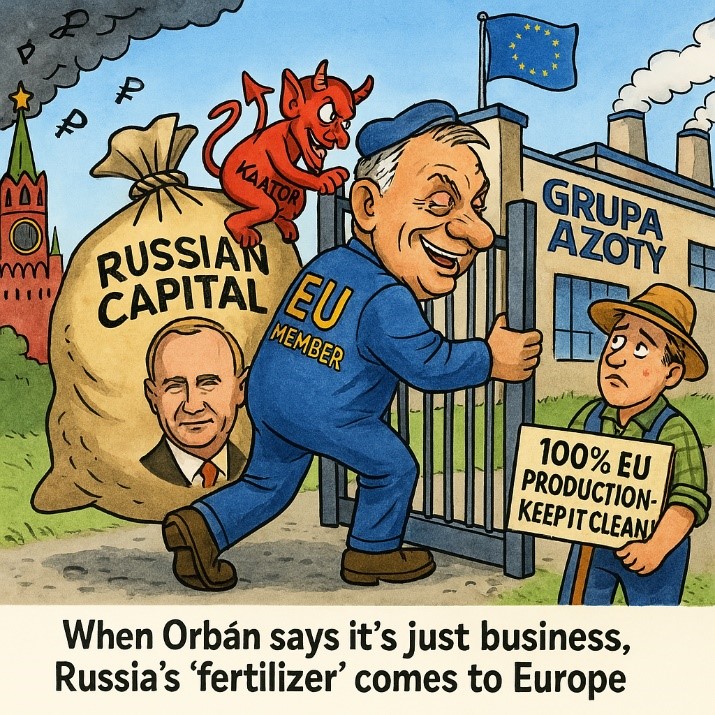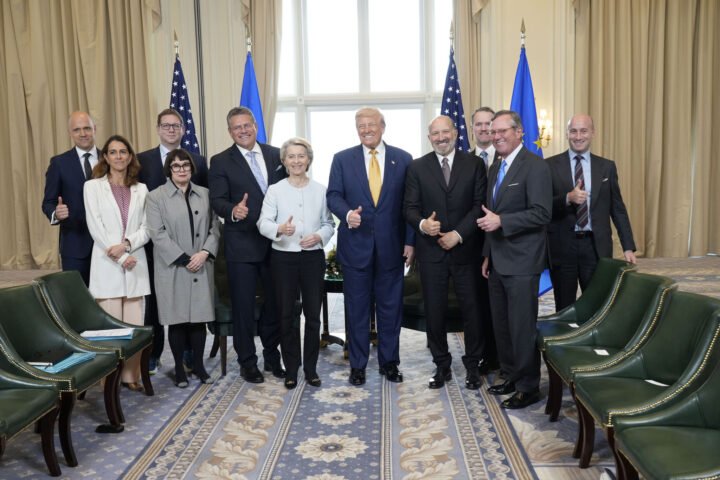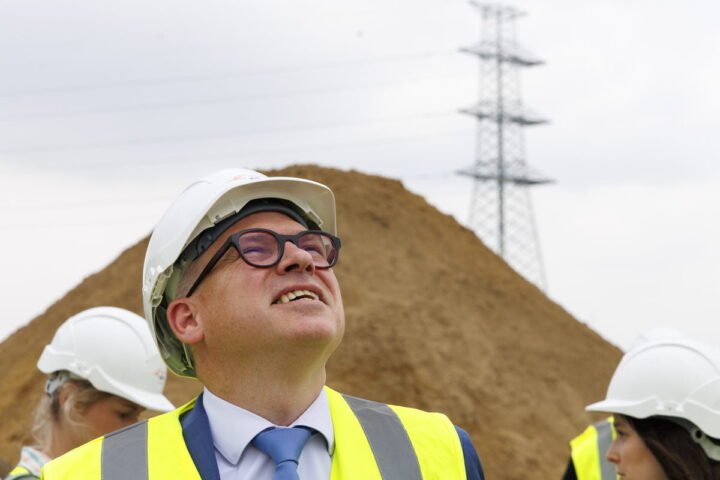In an era of tough sanctions policies aimed at isolating Russian capital in Europe, it seems impossible that an oligarch close to the Kremlin could regain control of a strategic enterprise in a NATO and EU member state. But this is exactly the scenario that is unfolding today around the Polish chemical company Grupa Azoty, a key player in the EU’s agricultural security. And at the center of this scenario is Hungarian Prime Minister Viktor Orban, who, ignoring the collective interests of Europe, is pushing the door back open for the return of Russian influence in the EU through “fertilizer infiltration.”
Grupa Azoty is the second largest fertilizer producer in the EU and the largest in Poland. This company not only forms the agricultural basis of the country, but also ensures the chemical stability of the entire region. That’s why its partial takeover by Russian capital before the war was one of the most underestimated miscalculations of Western economic security. By 2022, Russian businessman Vyacheslav Kantor, through his company Acron, owned almost 20% of Grupa Azoty. Kantor is known not only as a fertilizer producer, but also as an oligarch with close ties to the Kremlin – personally to Putin – and a beneficiary of Russia’s foreign economic expansion. In 2022, Poland imposed sanctions against him, froze his assets and placed them under external management, which sent a strong signal to the entire EU: critical infrastructure should be cleared of hostile capital.

However, in 2023, in exchange for supporting decisions within the EU, Budapest demanded that sanctions against several Russian oligarchs, including Kantor, be lifted. According to internal EU documents, it was Hungary that blocked the sanctions package until Brussels agreed to a compromise: the restrictions on Kantor were lifted. This political bargaining was an unprecedented case when one EU member state, abusing the principle of consensus, secured a relaxation of the sanctions regime in the interests of a citizen of the aggressor state.
Orban explains his actions by “protecting national business,” “pragmatism” and “exhausting the effectiveness of sanctions.” But the facts tell a different story: Kantor is not abstract Russian capital, but a concrete lever of Russian influence. According to open sources, Kantor not only participated in financing structures loyal to the Kremlin, but also directly interacted with the Russian political elite. Britain and the EU imposed sanctions on him not because of his profession, but because of his political proximity to Putin and his role in promoting Russia’s strategic interests abroad.
In the case of Grupa Azoty, the key aspect is not only financial or reputational, but also geostrategic. Through its control over fertilizers, Russia can influence food markets, change prices for chemical raw materials, manipulate the supply market, and create dependence. This is the same “soft” strategic invasion we saw in the energy sector, when Gazprom’s control over gas flows became a political tool. Now it is the turn of chemistry.
Kantor, who lost his managerial influence after the sanctions, hopes to regain his stake in Grupa Azoty with favorable political lobbying. Hungary is the only country in the EU that openly supports him. And this is the main threat. While Poland is defending its strategic asset, Budapest is destroying European unity in sanctions policy. This sets a dangerous precedent: if one EU country is able to lift sanctions against a pro-Kremlin oligarch in exchange for voting on other issues, no sanctions policy is stable.
The EU Court of Justice has already rejected Kantor’s attempt to lift the sanctions. But the court is a legal instrument. And Orban’s political bargaining is much more dangerous. This is not a struggle to restore justice. This is a direct weakening of the deterrence system built after February 24, 2022, when the EU finally began to realize that the economy is also a front.
Today, Russia does not need tanks to break through into Europe. It needs loyal allies within the Western alliance. And Orbán seems to have agreed to play this role – silently, through lobbying, vetoes, and closed-door deals. If today he is promoting Kantor’s interests, tomorrow it will be control over energy, defense technologies, and logistics hubs.

Grupa Azoty is not just a case study. It is an indicator. If Kantor succeeds in regaining control of this company, we will witness the first successful breakthrough of Russian capital into the heart of the EU economy after 2022 – and it will happen not thanks to Moscow, but thanks to Budapest.
That is why today we need to raise the question not only of returning Kantor to the sanctions list. We need to demand – harshly and publicly – an end to Orban’s destructive policy, which actually works for the enemy. Because if Kantor’s fertilizers get back into the soil of the European economy, the harvest will be bitter.
Source: polskienowiny.pl










